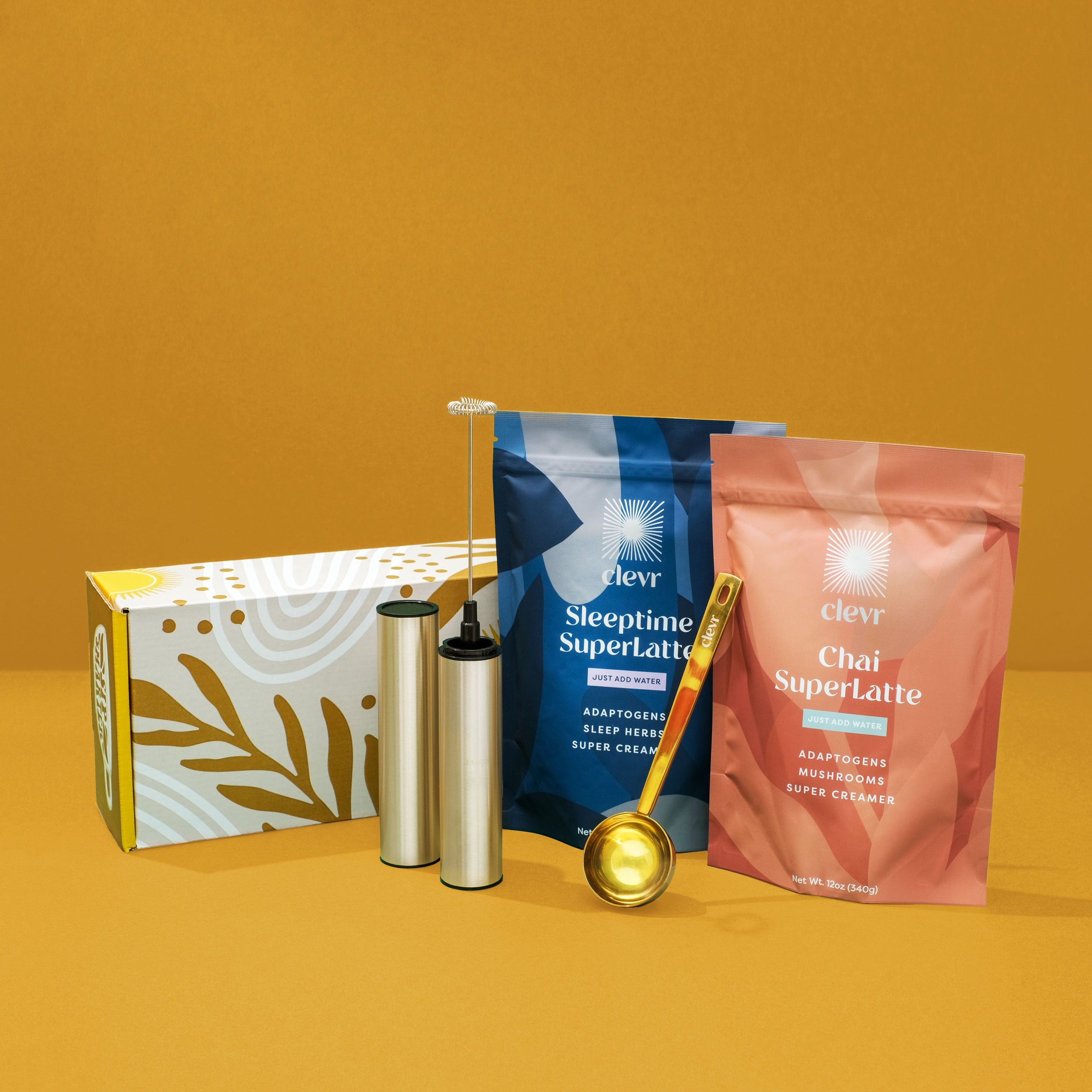
Caffeine can be a powerful tool for mental health, brain functioning and heart health, just to name a few. Here's how to optimize your caffeine consumption so that you can ensure that it’s helping rather than hurting.
Caffeine has gotten a bad rep…
And yes, we’ll be the first to say that without mindful consumption, caffeine can introduce a plethora of less-than-desirable effects. However, there are also multiple powerful benefits that often get overlooked and ignored. And at Clevr, we’re actually pro-caffeine. Here’s why…
Caffeine has been used in many cultures across the world, in varying forms, for millennia. The first brewed tea has been traced back to 2737 B.C., and coffee dates back to 850 A.D. in Ethiopia, where legend has it that a goat herder discovered the berries of an arabica plant by noticing how jumpy his goats were after eating them (The Harvard Gazette, 2020). Coffee and tea played a big role in many cultures, especially before there were available supplies of potable water, because they provided a safe drinking option, due to the boiled water (Caffeine: How Caffeine Created the Modern World, Michael Pollan).
It may come as a surprise to you that some of the effects of caffeine on your brain can act as a mild antidepressant. According to a study conducted by Harvard researchers, the risk of suicide was 50% lower in adults who consume caffeine compared to those who don’t. Another 2016 study revealed that caffeine consumption was significantly associated with decreased risk of depression. Caffeine increases the brain activity of several neurotransmitters, including dopamine (“feel good chemical”), serotonin and noradrenaline (The Harvard Gazette, 2013).
Caffeine has also been found to provide relief for many people who suffer from migraines and tension headaches. Adenosine, a naturally occurring brain substance, goes up in blood levels during migraines. Research has found that caffeine blocks the activity of receptor molecules that adenosine binds to, which in turn blocks the effects of adenosine on the brain (Stanford Medicine).
Caffeine has also been found to have potentially powerful effects on protecting against and minimizing risk of various health conditions and diseases. Here are a few…
As with everything, intentional consumption is key. Finding your sweet spot with the amount and type of caffeine that you are consuming can make a massive difference in the way it affects your body and mind. Here are a few things to consider with your caffeine consumption:
Rather than cutting caffeine out of your diet completely, consider optimizing your consumption to reap the benefits that it has to offer. Most importantly, remember that everyone absorbs and responds to caffeine differently. Listen to your body and how it feels, and consume mindfully based on that, to ensure that your caffeine consumption is helping rather than hurting.
